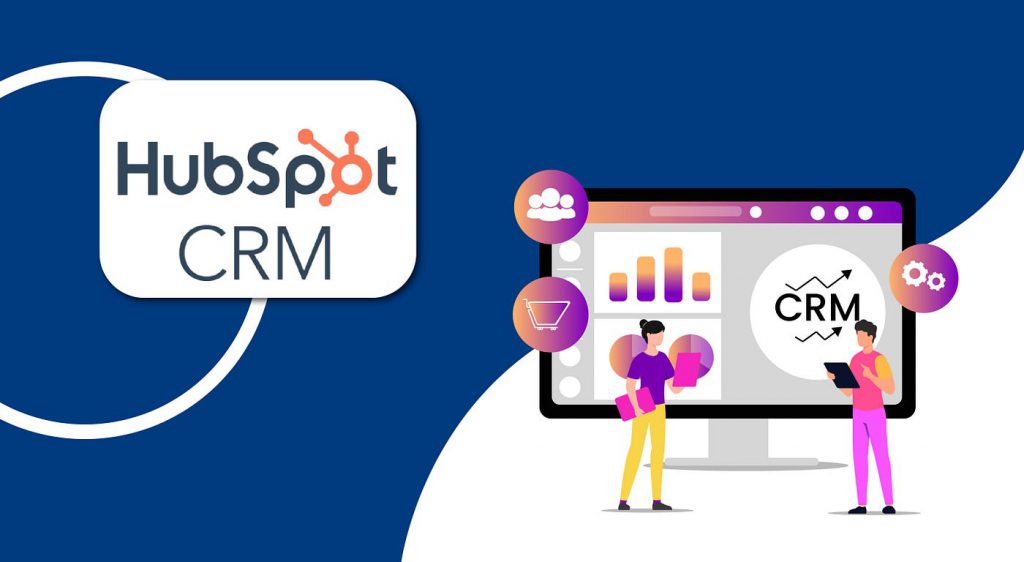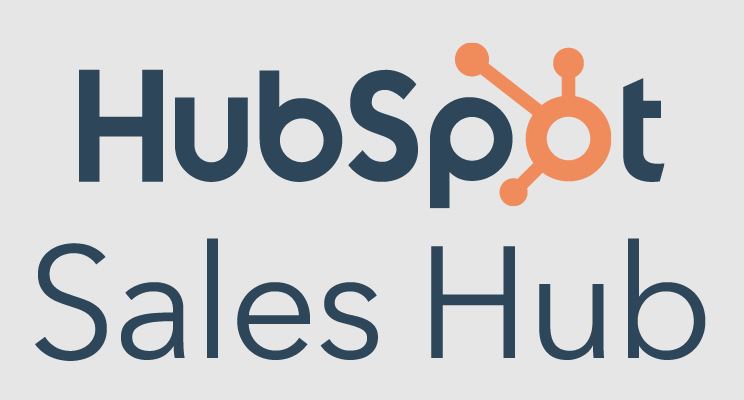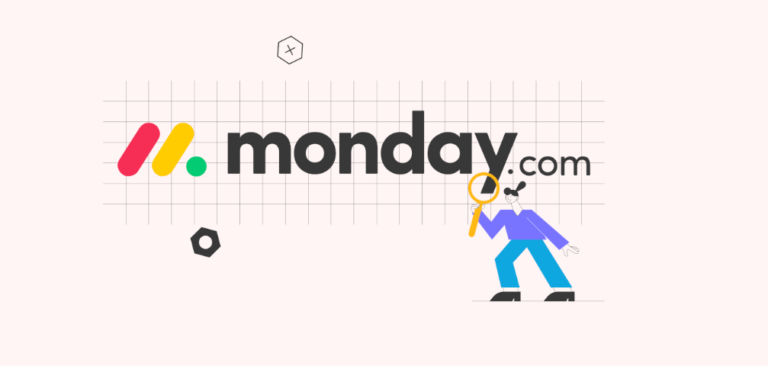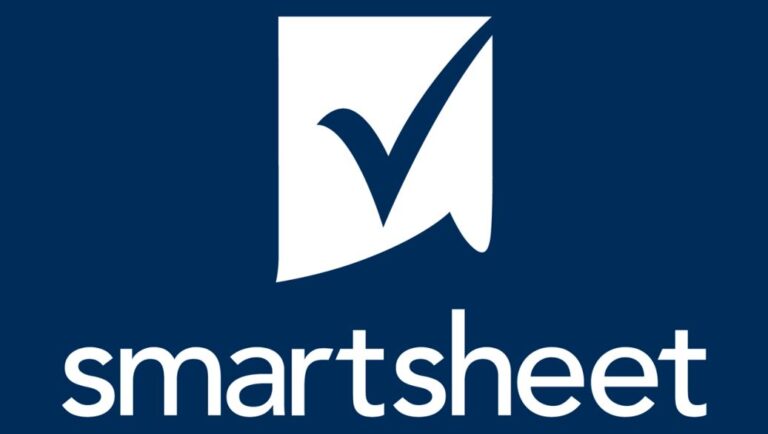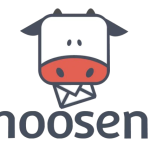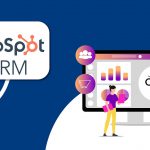Hubspot CRM Overview
If you’ve been exploring CRM options, chances are you’ve come across the highly recommended HubSpot CRM. However, if you’re still unsure whether it’s the perfect fit for your company, you’re not alone.
That’s why we’ve put together this comprehensive review of the HubSpot CRM, specifically focusing on its state as of 2024. With our experience using HubSpot, we have a wealth of insights to share. While we are strong proponents of HubSpot, we also recognize that it may not be the optimal CRM for every business.
As technology continues to evolve, our aim is to provide you with the most up-to-date information about this exceptional CRM platform. By the end of this review, you’ll be equipped to make an informed decision regarding whether the HubSpot CRM aligns with your needs. So, let’s delve into the details.
What is a CRM Software?
Customer Relationship Management (CRM) software is a solution designed to help businesses manage their interactions and relationships with customers. It serves as a central repository for customer data, allowing businesses to track and analyze customer interactions across various touchpoints.
A CRM system enables businesses to store and organize customer information, including contact details, communication history, purchase history, and preferences. This information helps businesses better understand their customers, anticipate their needs, and provide personalized experiences.
In addition to assisting businesses in organizing their customer and contact information, a CRM system offers various benefits such as implementing marketing automation, enhancing customer retention efforts, enabling accurate sales forecasting, and improving customer satisfaction. By utilizing CRM software, your company can create personalized experiences for each customer and buyer persona.
This is achieved by equipping sales representatives with the necessary information to establish genuine connections with leads and successfully close deals. Ultimately, an organized contact database provided by a CRM enables effective management of customer relationships, leading to improved overall customer satisfaction.
What is Hubspot CRM Hub?

HubSpot CRM Hub is a powerful customer relationship management (CRM) software offered by HubSpot, a leading provider of marketing, sales, and customer service solutions. It is designed to help businesses effectively manage their interactions with customers and streamline their sales processes.
HubSpot CRM Hub offers a wide range of features and capabilities to support businesses of all sizes. It serves as a centralized database for storing and organizing customer information, such as contact details, communication history, deals, and tasks. The CRM provides tools for managing and tracking leads, automating sales processes, and forecasting sales revenue.
One of the key advantages of HubSpot CRM Hub is its seamless integration with other HubSpot tools and solutions, such as marketing automation and customer service software. This integration allows for a cohesive and comprehensive approach to managing the entire customer journey, from lead generation to closing deals and providing ongoing support.
Moreover, HubSpot CRM Hub offers reporting and analytics features to track sales performance, monitor key metrics, and gain insights into customer behavior. This enables businesses to make data-driven decisions, identify opportunities for improvement, and optimize their sales strategies.
Overall, HubSpot CRM Hub is a comprehensive CRM solution that empowers businesses to manage customer relationships effectively, streamline sales processes, and drive business growth.
Who is Hubspot CRM Hub for?
HubSpot CRM Hub is designed to cater to a wide range of businesses and professionals who are seeking an efficient and effective solution to manage their customer relationships. The software is suitable for businesses of all sizes, from small startups to large enterprises.
HubSpot CRM Hub is particularly beneficial for sales teams and professionals who want to streamline their sales processes, track leads, and automate repetitive tasks. It offers features that assist in managing pipelines, tracking deals, and forecasting sales revenue.
HubSpot CRM Hub is also very useful for marketing teams and professionals who aim to implement marketing automation, segment their audience, and personalize their marketing campaigns. It allows for the integration of marketing efforts with the customer relationship management system, enabling a cohesive and data-driven approach.
Additionally, customer service teams can benefit from HubSpot CRM Hub’s ability to centralize customer information, track customer interactions, and provide a seamless experience when addressing customer inquiries or resolving issues.
Hubspot CRM Hub Pros and Cons
It’s important to consider these pros and cons in the context of your specific business needs and goals to determine if HubSpot CRM is the right fit for your business. Here are some things to look out for if you want to use Hubspot as your CRM service.
Pros
Cons
- HubSpot CRM has a clean and intuitive interface, making it easy for users to navigate and adopt quickly.
- HubSpot CRM offers a free version that includes many essential CRM features, making it a cost-effective choice for small businesses or those on a tight budget.
- HubSpot CRM integrates seamlessly with other HubSpot tools, such as marketing and sales automation, which allows for a comprehensive and unified approach to customer engagement.
- The platform provides robust contact management features, allowing users to store and organize customer data, track interactions, and maintain a centralized customer database.
- HubSpot CRM offers email tracking functionality, allowing users to see when recipients open their emails.
- While the free version of HubSpot CRM is a great starting point, it does have limitations compared to the paid versions.
- Although the platform offers customization options, making complex customizations may require technical expertise or the assistance of a developer.
- While HubSpot CRM integrates well with other HubSpot tools, it may be less seamless when integrating with third-party applications.
- While the basic features of HubSpot CRM are user-friendly, some of the more advanced features, such as workflow automation or complex sales reporting, may require time and effort to master.
- HubSpot CRM is designed primarily for small to mid-sized businesses. Larger enterprises with complex sales processes or specific CRM requirements may find that HubSpot CRM lacks certain advanced features or scalability.
Hubspot CRM Feature Ratings
HubSpot CRM Hub offers a wide range of features that empower businesses to effectively manage their customer relationships and streamline their operations. These features collectively contribute to a powerful and comprehensive CRM solution that empowers businesses to effectively manage customer relationships, streamline processes, and drive growth. Here are some of its key features:
General Ratings
CRM Database
The CRM Database of HubSpot CRM Hub offers a centralized storage solution for all your customers’ and prospects’ information. With the capacity to store up to 1,000,000 contacts without any time limit or expiration date, you can keep all the necessary data readily accessible.

By utilizing the CRM Database, you can eliminate the hassle of searching for contact information every time you need it. No more manual data entry or wasting time on disorganized spreadsheets. This streamlined approach allows you to efficiently manage your customers.
The HubSpot CRM Database holds various types of data, including customer names, titles, email addresses, and a record of past interactions. It also captures the medium through which leads were generated and assigns a lead score for effective lead management. Additionally, it tracks the number of orders customers have made and the amount of money they have spent. You can even store other relevant personal information about your customers.
To provide a glimpse of the functionality, the CRM offers a contact dashboard that presents a comprehensive overview of each individual contact’s details and interactions within the HubSpot CRM.
Lead Capture Tools
HubSpot CRM provides a comprehensive suite of lead capture tools designed to assist businesses in collecting and managing leads effectively. These tools include customizable forms that can be embedded on websites or shared as standalone landing pages. Additionally, pop-up forms can be triggered based on user behavior, attracting attention and encouraging visitors to provide their contact information.

The live chat feature enables real-time communication with website visitors, allowing businesses to engage with prospects and capture their contact details during the chat. HubSpot CRM’s conversational bots, powered by AI, engage with visitors, qualify leads, and gather relevant information. Lead Flows, non-intrusive slide-in forms, offer a seamless lead capture experience.
Furthermore, HubSpot CRM integrates with various third-party tools, facilitating lead capture from multiple sources and consolidating them within the CRM platform. These lead capture tools empower businesses to streamline their sales process, nurture leads, and drive conversions.
Customized Dashboard
HubSpot CRM provides a customized dashboard that allows businesses to have a personalized and centralized view of their sales and marketing activities. The customized dashboard in HubSpot CRM enables users to create and organize widgets that display relevant data and metrics based on their specific needs and goals.

Users can add widgets to track key performance indicators (KPIs), such as lead generation, deal pipeline, revenue, website traffic, email performance, and more. By tailoring the dashboard to their requirements, businesses can quickly access and analyze the data that matters most to them.
The dashboard also offers visual representations of data, such as charts and graphs, making it easier to understand trends and identify areas that require attention. With the ability to customize their dashboard, users can gain valuable insights, make data-driven decisions, and effectively monitor and optimize their sales and marketing strategies.
Task Management

HubSpot CRM provides robust task management capabilities to help businesses stay organized and ensure efficient execution of their sales and marketing activities. With HubSpot CRM’s task management features, users can create, assign, and track tasks within the platform.
Users can set due dates, assign tasks to specific team members, and prioritize tasks based on their importance and urgency. The CRM also allows users to associate tasks with specific contacts, companies, deals, or other CRM objects, ensuring that tasks are aligned with the relevant context.
Additionally, HubSpot CRM offers reminders and notifications to keep users informed about upcoming and overdue tasks. Users can view their tasks in a centralized task dashboard or calendar view, providing a comprehensive overview of their to-do list.

By leveraging HubSpot CRM’s task management capabilities, businesses can streamline their workflow, improve team collaboration, and ensure that important tasks are completed on time, leading to increased productivity and better customer relationship management.
Email Marketing

HubSpot CRM offers robust email marketing capabilities to help businesses create, automate, and optimize their email campaigns. With HubSpot CRM’s email marketing features, users can design visually appealing emails using customizable templates or a drag-and-drop editor.
They can personalize emails with dynamic content, merge tags, and contact properties to deliver targeted and relevant messages to their audience. The CRM allows for the segmentation of contacts based on various criteria, enabling precise targeting and better engagement.

HubSpot CRM’s automation tools enable users to set up automated email workflows, such as welcome sequences, lead nurturing campaigns, and abandoned cart reminders. Users can track email performance metrics, including open rates, click-through rates, and conversions, to measure the effectiveness of their campaigns.
Additionally, the CRM provides A/B testing capabilities to optimize email subject lines, content, and calls-to-action. With HubSpot CRM’s email marketing features, businesses can create compelling email campaigns, nurture leads, and drive customer engagement and conversions.
Segmentation
HubSpot CRM offers powerful segmentation capabilities to help businesses effectively target and personalize their marketing efforts. With HubSpot CRM’s segmentation features, users can categorize their contacts based on specific criteria and characteristics.

This allows for the creation of highly targeted segments for tailored marketing campaigns. Users can segment contacts based on demographic information, behavior, engagement, lifecycle stage, and more. This level of segmentation enables businesses to deliver relevant content and messages to their audience, increasing the likelihood of engagement and conversion.
HubSpot CRM also provides dynamic segmentation, which automatically updates segments as contact data changes. This ensures that marketing efforts remain accurate and up-to-date. Users can leverage segmented lists for email marketing, lead nurturing, personalized content, and more. By utilizing HubSpot CRM’s segmentation capabilities, businesses can optimize their marketing strategies, improve customer engagement, and achieve higher conversion rates.
Reporting and Analytics
HubSpot CRM offers robust reporting and analytics features to provide businesses with valuable insights into their sales and marketing performance. The reporting and analytics capabilities in HubSpot CRM allow users to track key metrics, measure the effectiveness of their campaigns, and make data-driven decisions.

Users can generate reports on various aspects, such as lead generation, deal pipeline, revenue, email performance, website traffic, and more. These reports can be customized to focus on specific time periods, data filters, and desired metrics. HubSpot CRM also provides visual representations of data through charts, graphs, and dashboards, making it easier to understand trends and patterns.
Users can analyze conversion rates, customer engagement, and other performance indicators to identify areas for improvement and optimize their strategies. Furthermore, HubSpot CRM integrates with other analytics tools and platforms, allowing users to combine data from multiple sources for comprehensive reporting. With its reporting and analytics capabilities, HubSpot CRM empowers businesses to measure their success, track progress toward goals, and continuously refine their sales and marketing efforts.
Automation and Workflows
HubSpot CRM offers powerful automation and workflow features to help businesses streamline their sales and marketing processes, save time, and improve efficiency. With HubSpot CRM’s automation capabilities, users can automate repetitive tasks and create custom workflows to automate various actions and communications.

Users can set up workflows to automatically assign tasks, send follow-up emails, update contact properties, and trigger specific actions based on predefined conditions or triggers. These workflows can be designed to nurture leads, qualify prospects, and move them through the sales funnel.
HubSpot CRM’s visual workflow editor allows users to easily create, customize, and visualize their automation workflows. Users can define the steps, conditions, and actions in a visually intuitive interface.
Furthermore, HubSpot CRM integrates with other tools and platforms, allowing for seamless automation across different systems and processes.
By leveraging HubSpot CRM’s automation and workflow features, businesses can reduce manual efforts, improve consistency, and deliver personalized and timely communications to their leads and customers. This automation helps businesses streamline their operations, enhance customer experiences, and drive better results.
API
HubSpot CRM provides a robust API (Application Programming Interface) that allows businesses to integrate and interact with the CRM platform programmatically. The API enables developers to access and manipulate various data and functionalities within HubSpot CRM, expanding its capabilities and integrating it with other systems and applications.

Using the HubSpot CRM API, businesses can perform a wide range of actions, such as creating and updating contacts, deals, and companies, managing tasks and activities, retrieving and analyzing data, and syncing information with external databases or platforms.
The API supports both REST (Representational State Transfer) and GraphQL (Graph Query Language) protocols, providing flexibility and options for developers to choose the most suitable approach for their integration needs.
With the HubSpot CRM API, businesses can build custom integrations, automate processes, synchronize data across multiple systems, and extend the functionality of HubSpot CRM to meet their specific requirements.
By leveraging the API, businesses can unlock the full potential of HubSpot CRM, enhance productivity, and improve their overall sales and marketing operations.
Integrations
HubSpot CRM offers a wide range of integrations with third-party tools and platforms, allowing businesses to connect and streamline their workflows across various systems. These integrations enhance the functionality of HubSpot CRM and enable businesses to leverage their existing tools while maintaining a centralized data hub. Some key integration categories include:
Email Marketing: HubSpot CRM integrates with popular email marketing platforms like Mailchimp, Constant Contact, and SendGrid, enabling seamless synchronization of contacts, automated email campaigns, and consolidated reporting.
Customer Support: Integrations with customer support platforms like Zendesk and Freshdesk facilitate the flow of customer information between systems, ensuring a seamless support experience and enabling comprehensive customer insights.
E-commerce: HubSpot CRM integrates with e-commerce platforms such as Shopify, WooCommerce, and Magento, allowing businesses to track and analyze customer interactions, sales, and order history alongside marketing efforts.
Analytics and Reporting: Integrating with analytics tools like Google Analytics and Databox enables businesses to gain deeper insights into website traffic, user behavior, and campaign performance, leading to data-driven decision-making.
Social Media: Integrations with social media platforms, including Facebook, Twitter, and LinkedIn, allow businesses to monitor and engage with social interactions, track ad campaigns, and capture leads from social channels.
Productivity and Collaboration: HubSpot CRM integrates with productivity tools like Google Workspace, Microsoft Office 365, and Slack, streamlining communication, task management, and document collaboration between teams.
Plans and Pricing for Hubspot CRM Hub

HubSpot CRM offers several plans and pricing options to cater to the needs of businesses of different sizes and requirements. Here is an overview of the available plans:
Free CRM
HubSpot CRM offers a free plan that includes core CRM features such as contact management, deal tracking, and task management. This plan allows businesses to get started with the CRM platform at no cost.
Starter
For just $15, you can get started with the starter plan, covering 1,000 subscribers. You’ll enjoy discounts when opting for yearly subscriptions.
Professional
The Professional package offers extensive software for marketing, sales, customer service, content management systems (CMS), and operations. Pricing starts at $1,080 per month. This plan allows you to Include 2,000 marketing contacts in your CRM.
Enterprise Plan
The Enterprise option provides our most robust software for marketing, sales, customer service, content management systems (CMS), and operations. Starting at $4,000 per month, this plan allows you to Include 10,000 marketing contacts in your CRM. It offers unparalleled capabilities for your business needs.

Billing Options, Discounts, and Fees
HubSpot CRM offers flexible billing options, discounts, and fees to accommodate the needs and budgets of businesses. Here are some key points to consider:
- Billing Options: HubSpot CRM provides monthly and annual billing options. The monthly billing allows businesses to pay on a month-to-month basis, while the annual billing offers discounted rates for businesses that choose to pay for the entire year upfront. Learn More.
- User-Based Pricing: HubSpot CRM’s pricing is typically based on the number of users who will be using the CRM platform. The cost per user varies depending on the selected plan.
- Discounts: HubSpot CRM occasionally offers discounts or promotional pricing for new customers or during specific periods. These discounts can provide cost savings for businesses looking to adopt or upgrade their CRM.
- Additional Fees: While HubSpot CRM’s pricing covers the core features and functionality, there may be additional fees for certain optional add-ons or advanced features. For example, certain integrations or specialized services may incur extra costs.
Customer Service and Support
HubSpot CRM offers various customer support options to assist users in resolving issues and getting the most out of the CRM platform. Here are some key aspects of HubSpot CRM’s customer support:- Chat and Phone Support: HubSpot CRM offers email and phone support options for more urgent or complex issues. Users can contact HubSpot's support team directly to get personalized assistance and guidance.
- Community and User Forums: HubSpot's community forum allows users to connect with other HubSpot CRM users, ask questions, share experiences, and seek advice. It's a valuable resource for troubleshooting issues, gathering insights, and learning from the community.
- Support Tickets: Users can submit support tickets directly through the HubSpot CRM platform or via the HubSpot support website. Support tickets are used for more specific and technical inquiries that may require personalized assistance from HubSpot's support team.
- Training: HubSpot provides a comprehensive knowledge base, which includes articles, tutorials, guides, and frequently asked questions (FAQs). The knowledge base covers a wide range of topics related to HubSpot CRM's features, functionalities, and best practices.
Final Verdict
HubSpot CRM is a powerful and versatile solution for businesses of all sizes looking to streamline their sales and marketing operations. With its robust features, including lead capture tools, customized dashboard, task management, email marketing, segmentation, reporting and analytics, automation and workflows, integrations, and customer support options, HubSpot CRM offers a comprehensive solution for managing customer relationships and driving growth.With HubSpot CRM, businesses can efficiently capture and manage leads, gain valuable insights into their performance, automate repetitive tasks, personalize communications, and integrate with other tools and platforms. The platform’s user-friendly interface and extensive support resources make it accessible to both beginners and experienced users.
Whether you’re a small business or an enterprise, HubSpot CRM provides the necessary tools and flexibility to improve efficiency, increase productivity, and enhance customer relationships.
Take advantage of the free CRM plan to get started, or explore the paid plans for advanced features and support. Elevate your sales and marketing efforts with HubSpot CRM today.
